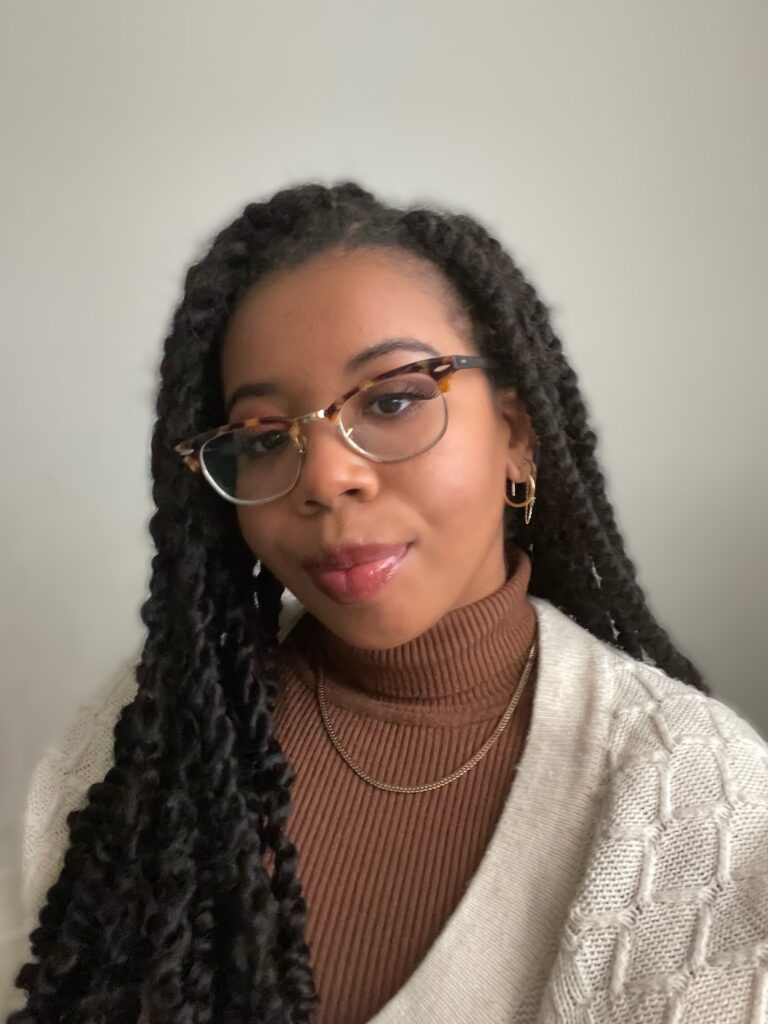
Major: Communication sciences
Minor: Psychology
Year: Third year
Language plays an integral role in how we communicate thoughts, ideas and feelings, but we may not always appreciate its significance. The reality is millions of people are impacted by communication disorders—and Amber See is on a mission to help ensure their voices are heard.
A third-year communications sciences major at Case Western Reserve University, See understands how hearing and speech challenges affect people’s everyday lives.
“Just imagine the difficulties people may face when talking to their boss, answering a question in the classroom, placing an order, or trying to communicate with their friends and family,” she said.
While the Cleveland native started her academic journey at CWRU as a biology major, a conversation with Professor Lauren Calandruccio at the university’s Choices Fair helped her discover her passion for spoken language. See credits this conversation with changing her college experience, shifting her focus from a field she didn’t love to one that makes her excited about her future career.
See took her first steps toward that career path in October 2020 when she began her ongoing role as a research assistant in Calandruccio’s Speech and Auditory Research (SpAR) Lab. There, See studies how people understand speech in noisy environments based on a variety of factors, including hearing ability and bilingual speech perception.
“Conducting research and having the opportunity to work closely with such passionately driven people has been a highlight of my undergraduate career,” she noted.
See also serves as the president of the university’s National Student Speech Language Hearing Association, a pre-professional organization for students interested in communication sciences and disorders, speech-language pathology, audiology, psychology, education and the medical field. Her participation in the organization involves holding graduate student panels, study nights, mentor-mentee programs and speaker seminars featuring clinicians who give overviews of a day in the life of a speech-language pathologist or audiologist.
This summer, See extended her research efforts beyond CWRU by completing an internship at The Ohio State University’s Science of Language and the Language of Science program, funded by the National Science Foundation’s Research Experiences for Undergraduates. During her internship, she conducted interactive demonstrations for guests at the Center of Science and Industry, a science museum in Columbus, and covered topics such as the International Phonetic Alphabet, regional dialects, American Sign Language and the Stroop Effect, a phenomenon that reveals how the brain processes information.
Next year, See will return to the program, where she said she is excited to serve as a peer advisor for the 2023 cohort and continue as a research assistant. Until then, she’ll continue to broaden her research network at the SpAR lab as she helps collect data for research projects and create stimuli for speech perception experiments.
See also is an active participant in the Innovative Mentoring and Professional Advancement through Cultural Training (IMPACT) Program—a mentoring program focused on helping communication sciences and disorders students from underrepresented minority backgrounds excel at the undergraduate level—and she mentors students from Cleveland-area high schools through the university’s Emerging Scholars Program.
After graduating, See hopes to pursue a master’s degree in speech-language pathology and eventually work as a medical speech-language pathologist to diagnose and treat speech, language, cognitive and swallowing disorders.
